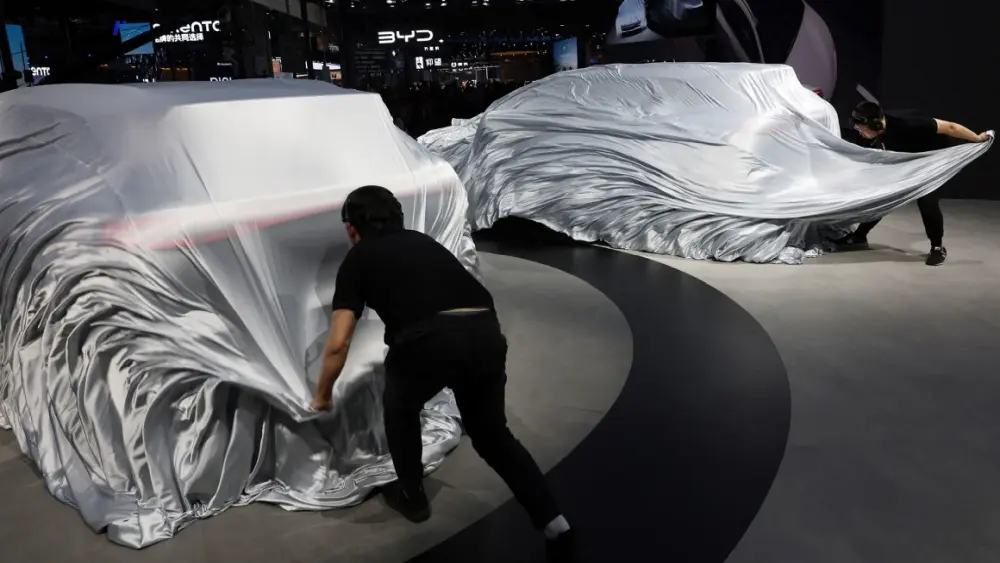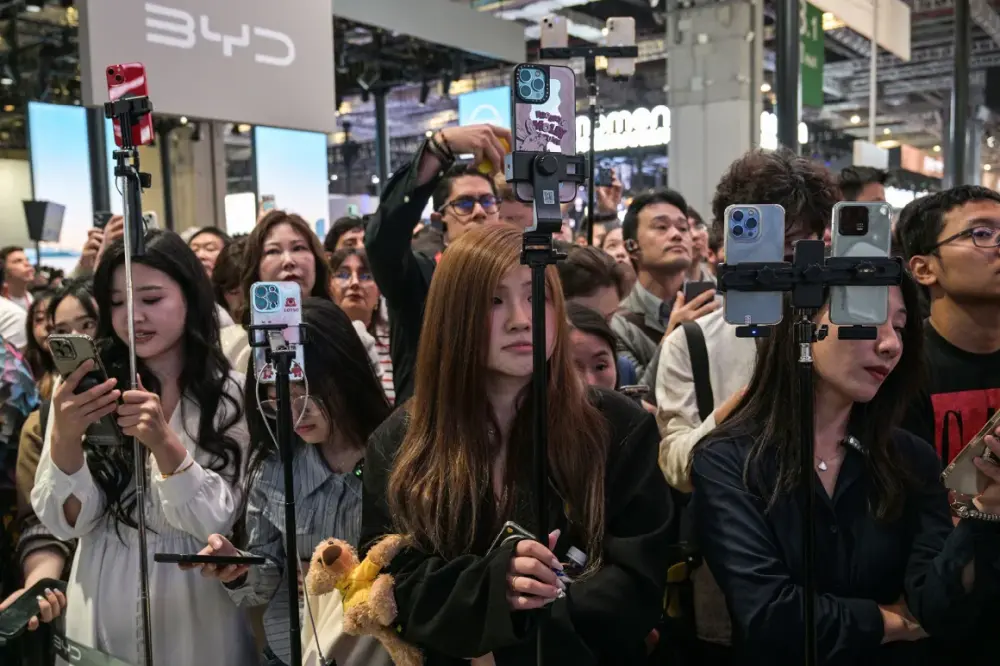At the 2025 Shanghai Auto Show, the spotlight was firmly on China’s electric vehicle industry, and for good reason. The event was a showcase of technological ambition, national pride, and market confidence. Chinese automakers like BYD, XPeng, and NIO unveiled their latest models, with features that underline just how quickly the sector is evolving. BYD’s ultra-fast charging system drew particular attention, promising a vast expansion of new charging stations across the country. The atmosphere in Shanghai was electric—both literally and metaphorically—as thousands of visitors explored futuristic vehicles that now feel less like prototypes and more like the new norm.
The energy at the show reflects a broader momentum in China’s EV market. In April 2025, BYD reported selling over 380,000 new energy vehicles, marking a 21% year-on-year increase. XPeng wasn’t far behind, tripling its monthly deliveries to over 35,000 units. These aren’t just local wins—these numbers indicate a strong push into the global market, where Chinese EVs are gaining traction not just because of price but also because of the features they offer. Vehicles at the Shanghai Auto Show boasted long-range capabilities, smart cockpits, and sleek design that rival Western and Japanese competitors.

Behind this rise is a carefully engineered government strategy. Over the past decade, China has invested more than $21 billion in the development of new energy vehicles. These investments have funded R&D, subsidies, and infrastructure that make EV ownership more attractive. As a result, the average Chinese EV is now significantly cheaper than its European or American counterpart—by 40% and 50% respectively. This price advantage, coupled with rapid innovation, explains why China is now leading not just in domestic adoption but also in exports.

However, challenges loom. Growing political resistance in the West, especially from the U.S. and Europe, threatens to restrict China’s EV exports. New tariffs, including a potential 145% U.S. import tax on Chinese goods, could dent some of the momentum. Yet, Chinese automakers are adapting quickly, moving parts of their production closer to foreign markets and accelerating their pace of innovation. If the Shanghai Auto Show was any indication, China’s EV industry isn’t slowing down—it’s charging ahead at full speed, and the rest of the world is watching closely.

#ShanghaiAutoShow #EVrevolution #BYD #XPeng #ChinaEV #ElectricCars #GreenTech #FutureMobility #NIO #AutoInnovation
